I spend a lot of time in my kitchen, so having a good set of knives is pretty imperative for me. For Christmas, my wonderful hubby bought me a new set of shiny knives! Yes, I am one of those women who does enjoy getting kitchen appliances and gadgets for holidays. If it makes my life easier, I am all for it! The last set of knives we had were from our wedding registry, and they were pretty worn down, and needless to say, I was ready for a nice new set.
Within a few months though, my knives started getting small rust spots on the blade. I think this may be due to the dishwasher, and perhaps this can be avoided by hand washing… but I’m not a huge fan of washing dishes by hand, so instead of finding a prevention, I would rather find a solution 🙂
With the help of my good friend, Google, I have come up with a list of natural knife cleaning methods, and I have tried them all out. Here are the results, so you can decide for yourself what you think is best!
Potatoes:
Potatoes have oxalic acid. The acid is supposed to dissolve the rust. I grabbed a pair of rusty shears and plunged them (carefully) into the potato and let ’em hang out for a couple hours.
Onions:
Onions have enzymes called allianases, which break down to sulphoxides when they come in contact with oxygen. This creation is called sulphenic acid.
Sulphenic acid reacts strongly to anything that contains hydroxide ions. Rust, as it turns out, contains hydroxide ions . The sullphenic acid is said to break down the rust. To put this theory into action, I sliced an onion, multiple times, then laid down the knife down and layered the onion slices on top, letting it stay there for 2 hours.
Lemon Juice:
Citric acid is the key in lemon juice’s ability to remove rust. There are several variations of this home remedy available online, and frequently it’s used in combination with salt.
For my experiment, I simply poured lemon juice into a glass, added the knife, and let it soak for 2 hours.
Vinegar:
Vinegar is kind of the Holy Grail of natural cleaning agents. The acetic acid content in vinegar is supposed to be the helpful hand that makes vinegar remove rust.
I soaked the blade of a knife in white vinegar for 2 hours.
The Verdict:
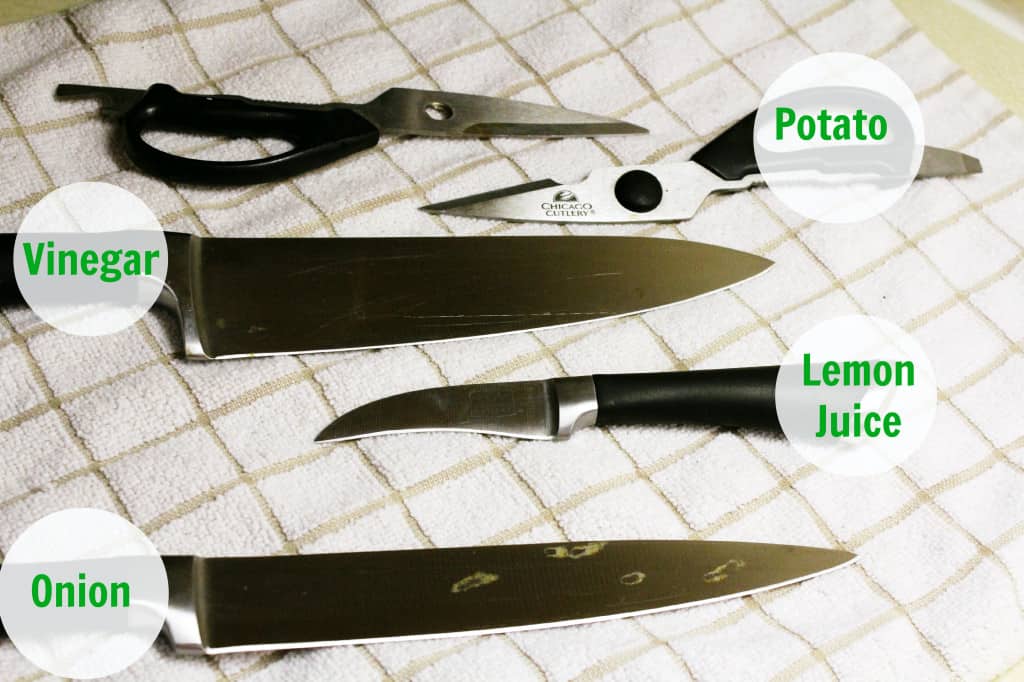
In 3rd place, we have the Vinegar. I was fairly disappointed in this, to be honest. The only change I saw as a result of the vinegar soak is a *slight* lightening of the rust stains. I suppose the vinegar may need longer than 2 hours, but for the sake of this experiment, it fell short of expectations.
In 2nd place, we have the Potato. I actually expected the potato to be the least successful, so I was surprised to see that a lot of the discoloration on the scissors was easily wiped off after extracting the shears. The rust was still visible, but definitely lighter.
And the winner is Lemon Juice! After removing the knife from the lemon juice, I was able to effortlessly remove the rust stain from the blade, in a matter of seconds.

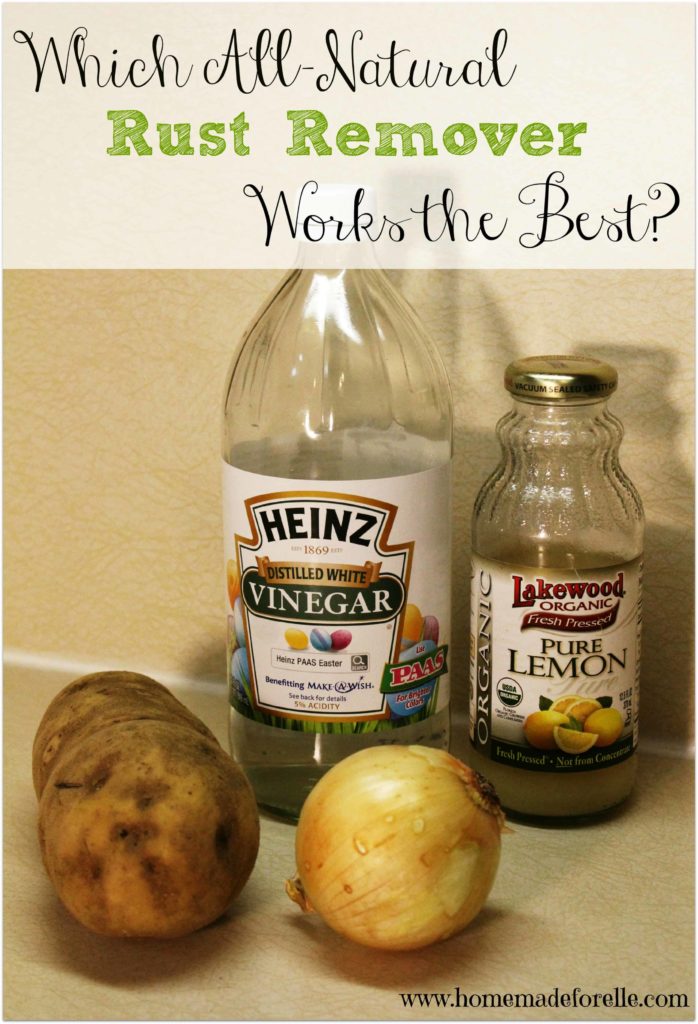
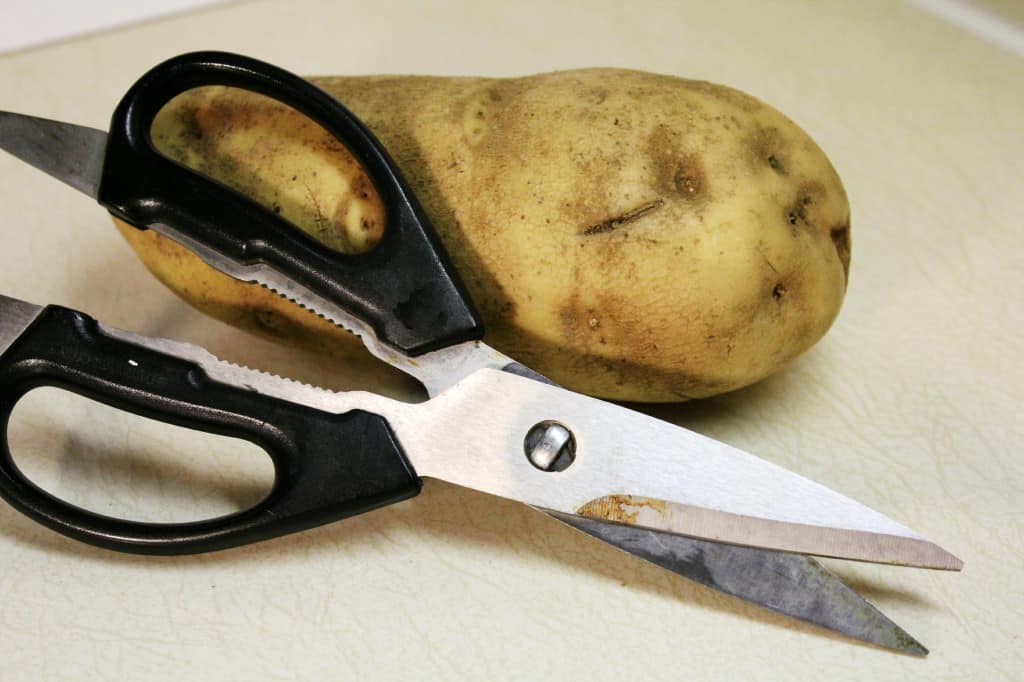
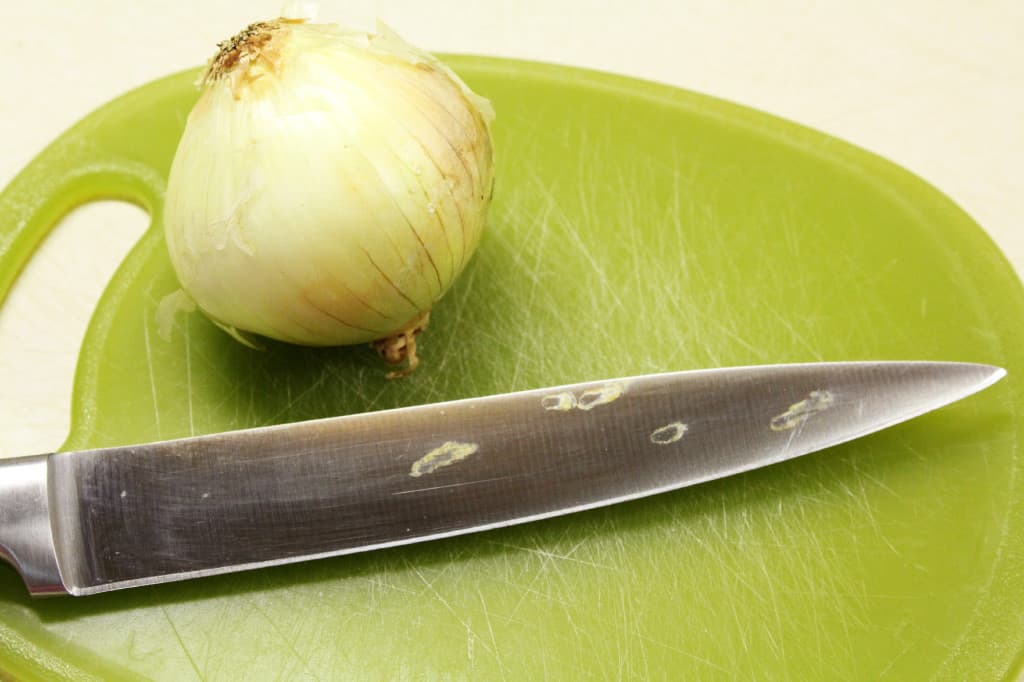
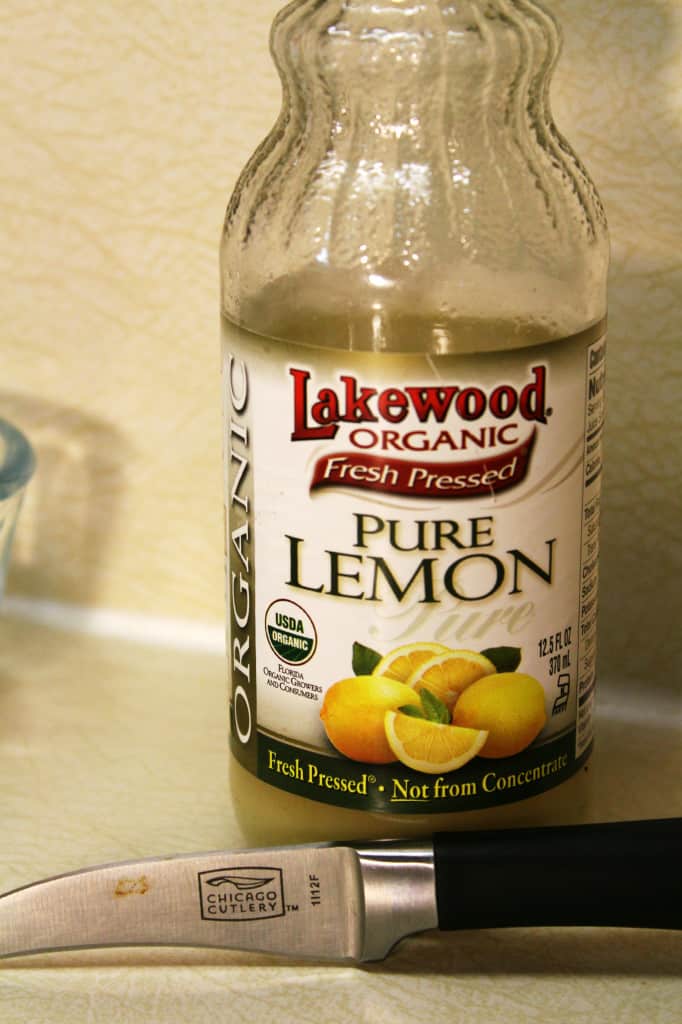
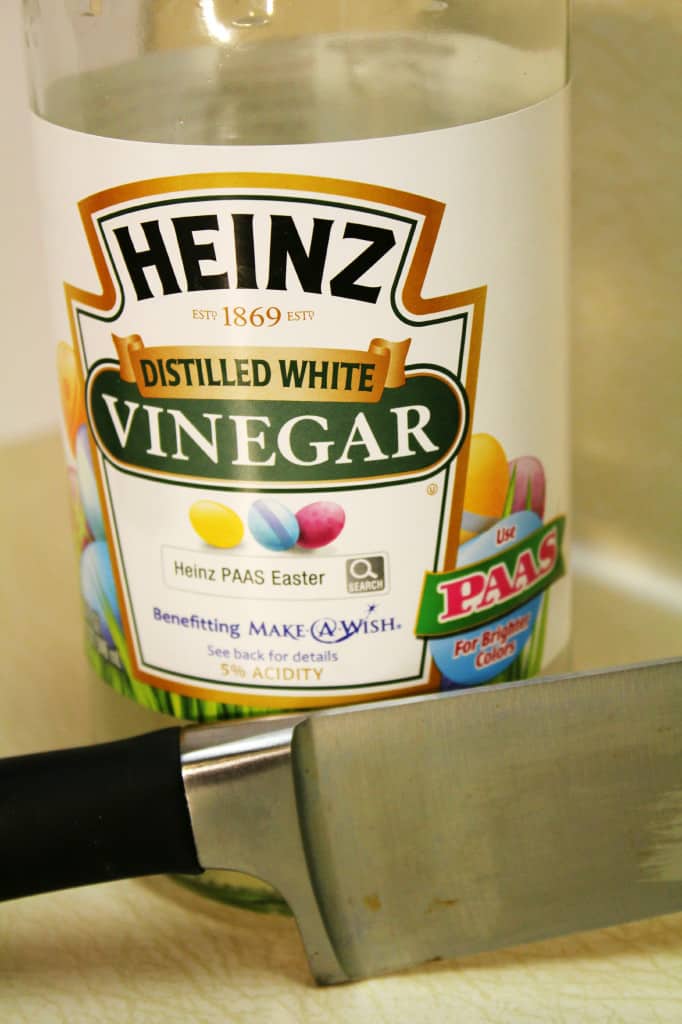
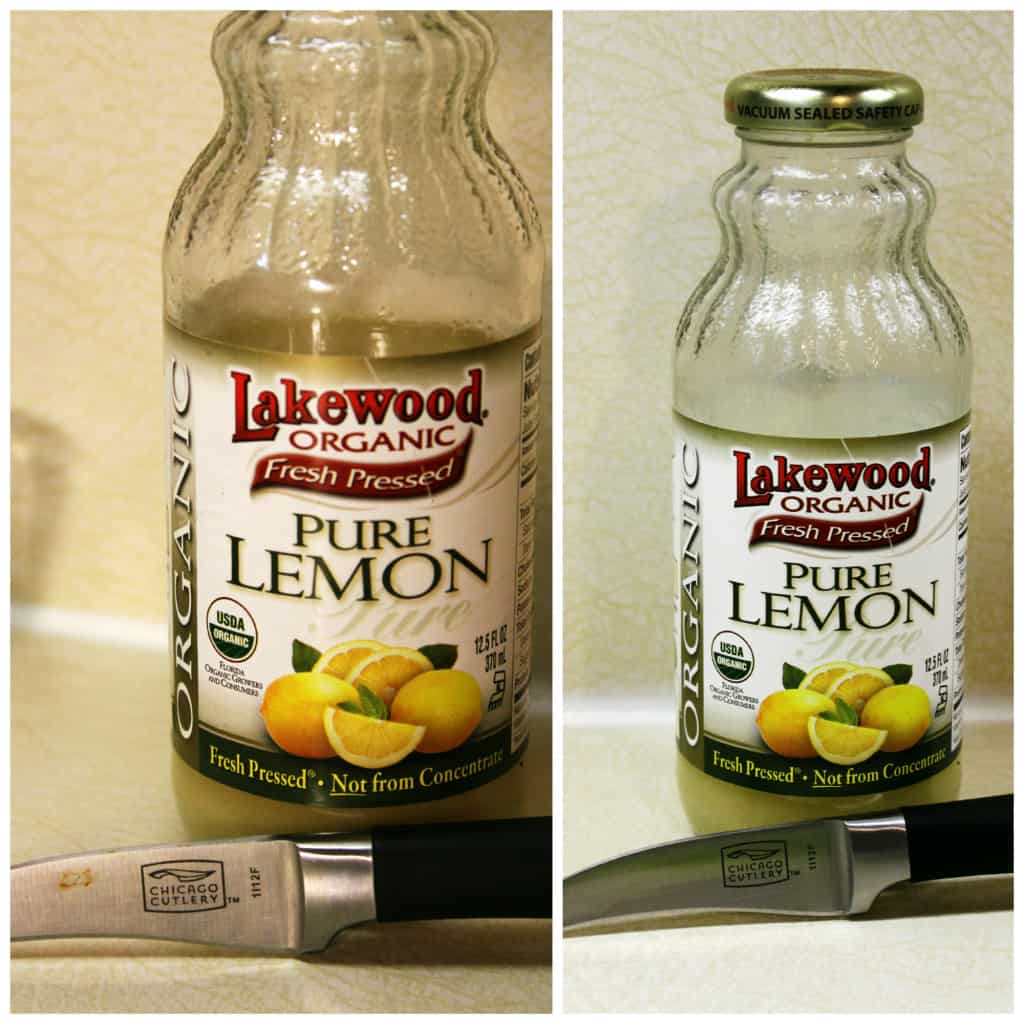

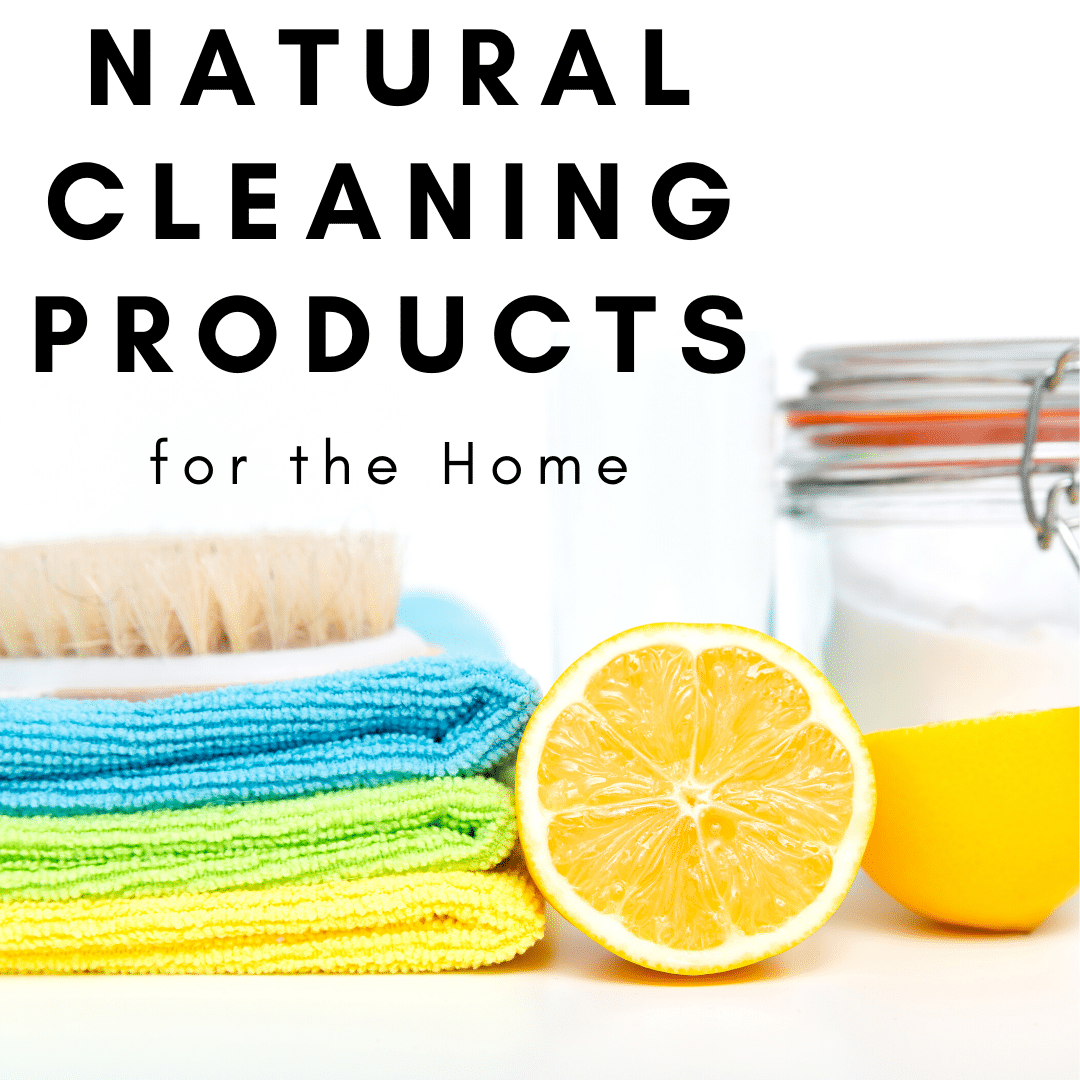
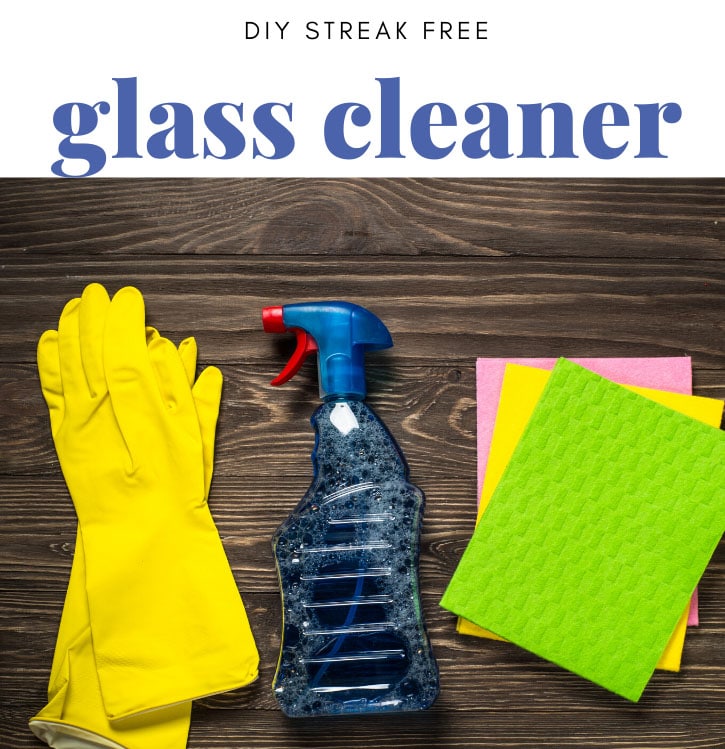
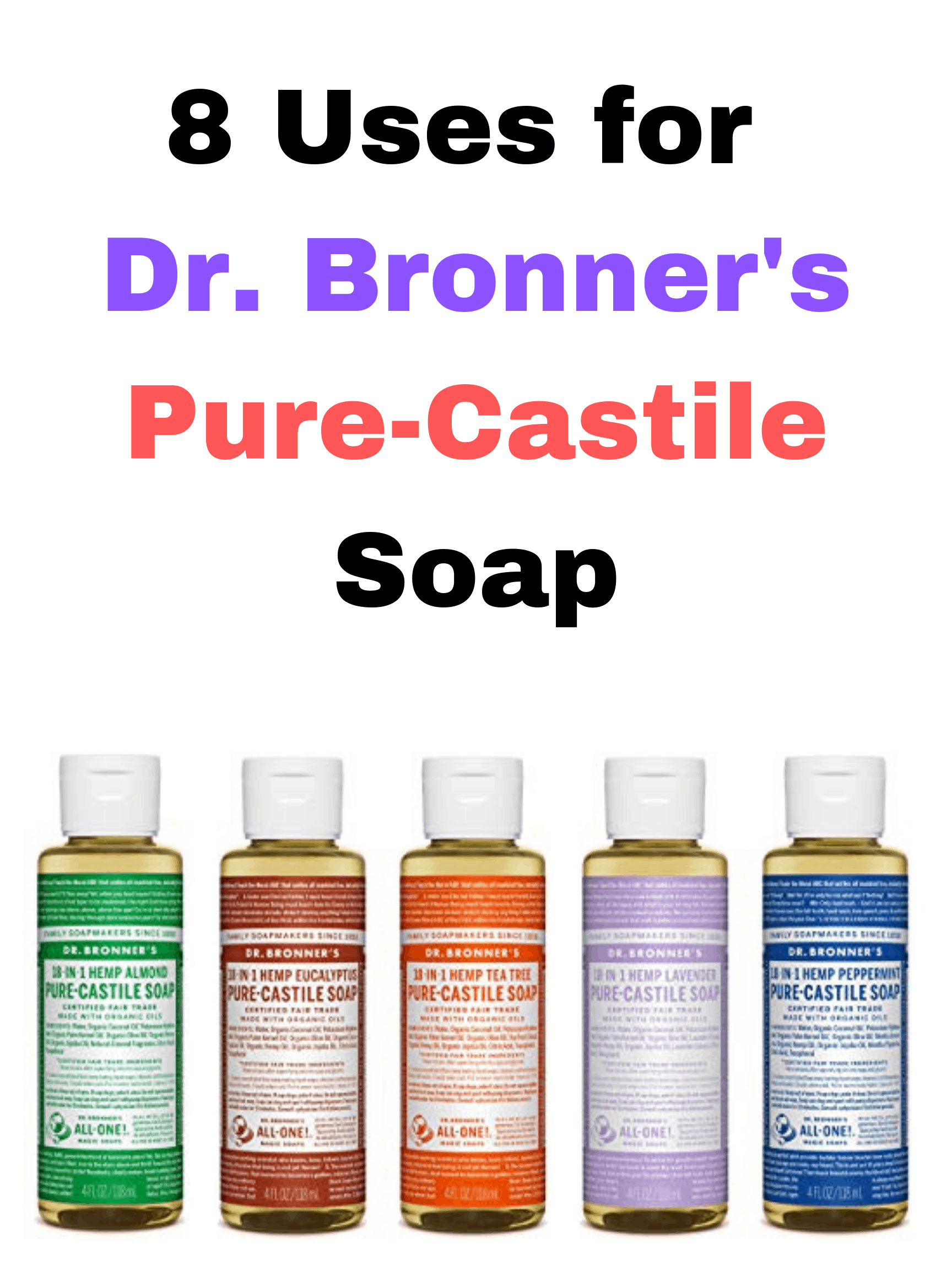
This is such a great article. Simple, clear, and to the point. Thank you for showing the different methods and the results! I’m trying to remove rust from an old garbage disposal and originally thought Vinegar would be my go-to. I’ll be grabbing a bottle of lemon juice now. Thank you!!
If you were to combine an acidic and basic mixture such as dish soap and lemon juice, would it just nutrialize to become a weak acid/base? Or would their combined properties work agasint the rust? Thanks for your time and solutions!
Felt I must leave a word of thanks for your taking time to try these different home brewed methods of removing ” DREADED RUST ” . Again , Many Thanks !!!
Rick Ames
I have a lemon tree here in San Juan Capistrano. It bares lemons year round. I have used the lemons for rust removal many of my old tools. Some I have had for 60 yrs. Also nuts, screws and bolts. The lemons do the trick. An old fruit peddler once told me that the lemon was the king of the fruits because it had so many uses.
almost didn’t read your blog, had to load your page a few times, and then stop a script
just so I could scroll down and read your results …
I picked up a bottle of lemon juice yesterday,
and was hoping I read correctly somewhere
lemon was the best to removing rust …. so you have confirmed that = )
I think it was lemon mixed with cream of tarter and baking soda to make a paste …
have a 50’s chrome kitchen table I left in a shed over the winter,
and moisture in the air, must have been the problem …. cause all the chrome went rusty
thanks for the post
Karen – I am sorry you had a hard time getting my page to load. I will definitely look into that!
Thanks for the suggestion on cream of tarter and baking soda – I will be sure to keep that in mind next time I am tackling a big rust project!
I will give it a try in my walk in shower today… Some of my faucets will really need it…
Have to say I laughed at the way you named and numbered your winning solution. Thanks for the advice I will go with the lemon , ive tried vinegar and its never worked.
Apple cider vinegar works better
My whole house smells of lemon because I use it for lots of things (rust remover, household cleaner, facials, cooking, etc. Much cheaper than many alternatives.
Than Nguyen
http://www.protectivepackaging.net/military-packaging
Great blog experiment! Lemons it is.